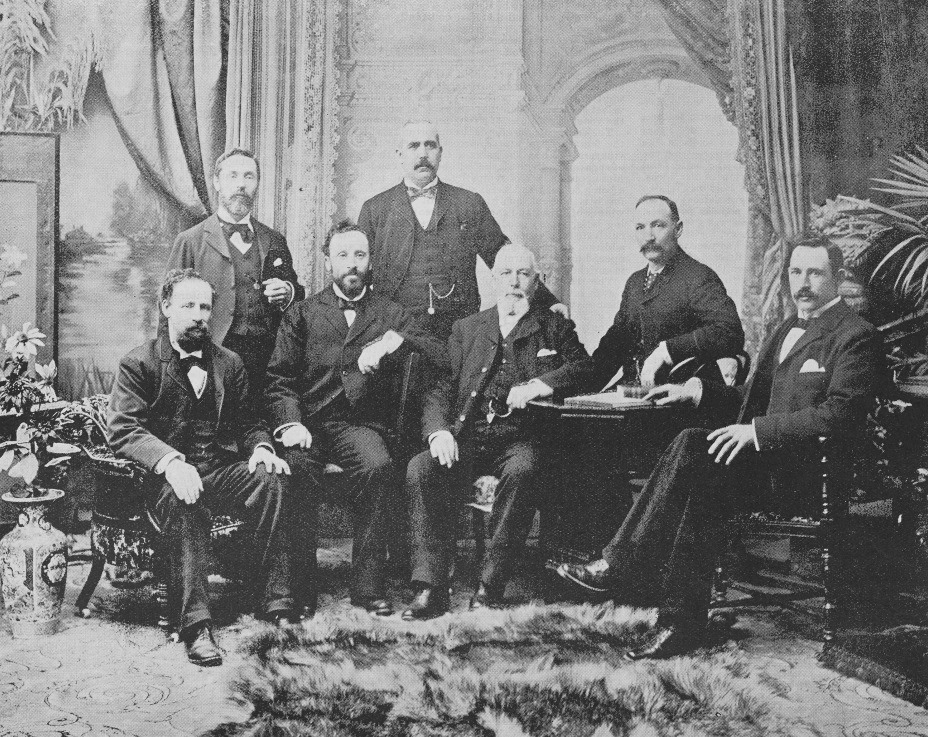|
Liberal–Labour (New Zealand)
Liberal–Labour (often referred to as "Lib-Lab") was a political association in New Zealand in the last decade of the nineteenth and first half of the twentieth centuries. History Initially, Liberal–Labour candidates were usually members of the Liberal Party who received Labour movement endorsement and/or advocated on behalf of labourers and trade unions in parliament. This was mainly a result of the early unionists being mostly anti-political. In 1890 there was a "Lib-Lab" alliance where Liberals and Labour sympathizers co-operated with each other. The two agreed on candidates who ran on combined tickets in several electorates. Equally, in others where only one was running against a government member, supporters of both backed each other's candidates. Most Liberal-Labour support initially came from the South Island; prior to 1905, only one MP considered to be Liberal-Labour (John Hutcheson) came from a North Island seat. When the Liberal Party won power in 1890, five members ... [...More Info...] [...Related Items...] OR: [Wikipedia] [Google] [Baidu] |
Lib-Labs 1896
The Liberal–Labour movement refers to the practice of local Liberal Party (UK), Liberal associations accepting and supporting candidates who were financially maintained by trade unions. These candidates stood for the Parliament of the United Kingdom, British Parliament with the aim of representing the working classes, while remaining supportive of the Liberal Party in general. The first Lib–Lab candidate to stand was George Odger in the 1870 Southwark by-election. The first Lib–Lab candidates to be elected were Alexander Macdonald (Lib-Lab politician), Alexander MacDonald and Thomas Burt, both members of the Miners' Federation of Great Britain (MFGB), in the 1874 United Kingdom general election, 1874 general election. In 1880 United Kingdom general election, 1880, they were joined by Henry Broadhurst of the Operative Society of Masons and the movement reached its peak in 1885 United Kingdom general election, 1885, with twelve MPs elected. These include William Abraham (trad ... [...More Info...] [...Related Items...] OR: [Wikipedia] [Google] [Baidu] |
James Arnold (New Zealand Politician)
James Frederick Arnold (6 June 1859 – 10 July 1929) was a New Zealand Member of Parliament of the Liberal Party for various Dunedin electorates. Private life Born in Saint Peter Port, Guernsey, on 6 June 1859, Arnold was the son of Julius Arnold. The family emigrated to New Zealand in 1864. James Arnold went on to become a bootmaker and trade union leader. He was known as "the bootmakers lawyer" at the Industrial Conciliation & Arbitration (ICA) Court. Member of Parliament Arnold represented City of Dunedin (–1905), Dunedin South (–1908) and Dunedin Central (–1911) in the New Zealand House of Representatives. At the 1905 election, Arnold stressed his Independent credentials and said that the "present administration Premier.html"_;"title=".e._Premier">.e._Premier_Richard_Seddon's_New_Zealand_Liberal_Party.html" "title="Premier_Richard_Seddon.html" ;"title="Premier.html" ;"title=".e. Premier">.e. Premier Richard Seddon">Premier.html" ;"title=".e. Premier">.e. P ... [...More Info...] [...Related Items...] OR: [Wikipedia] [Google] [Baidu] |
Political Parties Disestablished In The 1910s
Politics (from , ) is the set of activities that are associated with making decisions in groups, or other forms of power relations among individuals, such as the distribution of resources or status. The branch of social science that studies politics and government is referred to as political science. It may be used positively in the context of a "political solution" which is compromising and nonviolent, or descriptively as "the art or science of government", but also often carries a negative connotation.. The concept has been defined in various ways, and different approaches have fundamentally differing views on whether it should be used extensively or limitedly, empirically or normatively, and on whether conflict or co-operation is more essential to it. A variety of methods are deployed in politics, which include promoting one's own political views among people, negotiation with other political subjects, making laws, and exercising internal and external force, including w ... [...More Info...] [...Related Items...] OR: [Wikipedia] [Google] [Baidu] |


